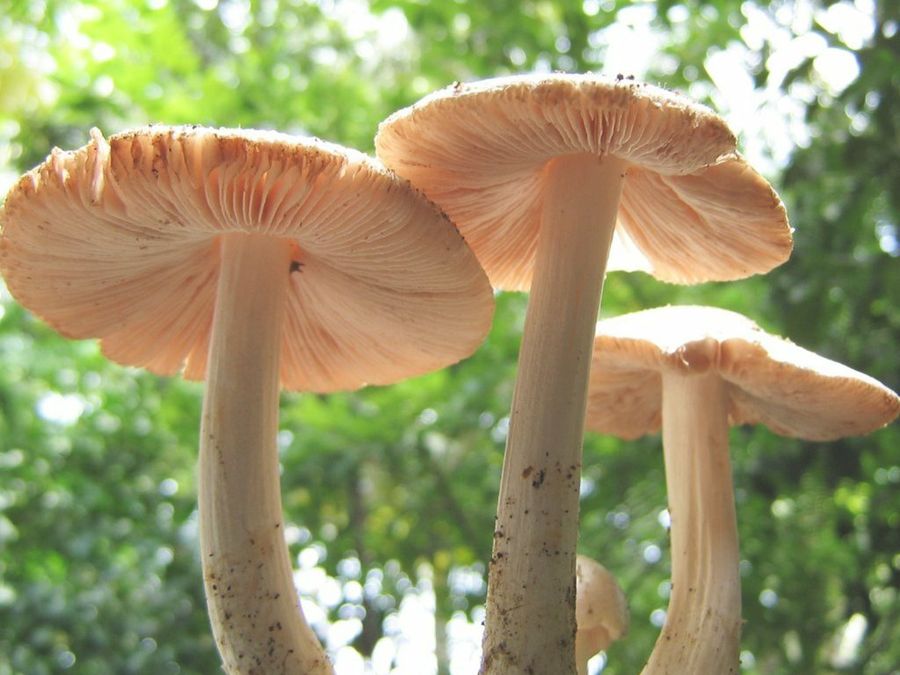In the News April 21
Earth Day 2022
Plastic-Eating Mushrooms
Scientists are coming up with some promising discoveries in utilizing plant-based bio-materials as substitutes for conventional plastics. These conventional plastics are mainly derived from fossil fuels and degrade very slowly, or virtually not at all, causing major pollution problems across the world. In contrast, bio-materials, which include nano-cellulose and lignin from wood, and crops such as lentils and corn, can degrade relatively fast under proper conditions.
 But what is to be done about the existing conventional plastics which are still in use, or the billions of tons dumped in landfills and other locations? Scientists have also discovered that certain mushrooms, fungi and other microorganisms can actually eat up this plastic and do so without air or light, potentially making them ideal to attack sites, like landfills, polluted with plastics. Scientists have found that after absorbing and transforming the plastic some species of these mushrooms are perfectly edible.
But what is to be done about the existing conventional plastics which are still in use, or the billions of tons dumped in landfills and other locations? Scientists have also discovered that certain mushrooms, fungi and other microorganisms can actually eat up this plastic and do so without air or light, potentially making them ideal to attack sites, like landfills, polluted with plastics. Scientists have found that after absorbing and transforming the plastic some species of these mushrooms are perfectly edible.
The discovery of these plastic-consuming mushrooms was made in the Amazon rain forest by a group of student researchers led by a molecular biochemist from Yale University. Peering into the future, some scientists believe that, besides society tackling the landfill problem, every household could have its own fungi home recycling kit which would consume plastic waste, similar to the breaking down of waste in home composters.
In addition, researchers from the firm Ecovative have developed processes in which mushrooms digest wood and agricultural waste and from which are created furniture and packaging materials that can be used as a substitute for petrochemically-based Styrofoam.
What these and other leading edge discoveries show is that, despite the problems of the present, human society has the scientific and technological capability to address these challenges and move society ahead.
(With files from Mindset Co)
TML Daily, posted April 21, 2022.

|

|

